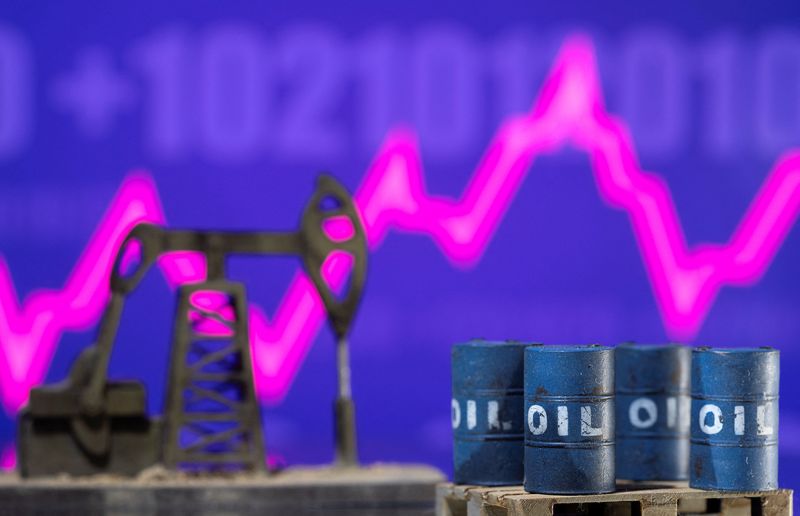By Nina Chestney, Nigel Hunt and Pratima Desai
LONDON (Reuters) - Commodity prices jumped to multi-year highs on Thursday after Russia invaded Ukraine, raising the prospect of tighter supplies due to the possibility of additional sanctions on Russian exports, transport disruptions and Moscow withholding supplies.
Russia launched an all-out invasion of Ukraine by land, air and sea on Thursday, the biggest attack by one state against another in Europe since World War Two.
It supplies 10% of the world's oil, a third of Europe's gas and, together with Ukraine accounts for 29% of global wheat exports, 80% of sunflower oil exports and 19% of world corn exports.
Russia is the world's largest supplier of palladium with a 40% market share. It accounts for 10% of global nickel supply and 6% of aluminium supplies.
Oil rose above $105 per barrel for the first time since 2014, UK and Dutch gas rose about 40%-50%, wheat jumped to a near decade high, corn to an eight-month peak and aluminium soared to record highs.[NG/EU] [O/R] [GRA/]
In precious metals, palladium prices jumped to seven-month highs and gold climbed to a near 18-month peak as investors switched to safe-haven assets. [GOL/]
Graphic: Key commodities jump higher on Thursday after Russia launches a full invasion of Ukraine - https://fingfx.thomsonreuters.com/gfx/ce/dwvkrlrwmpm/CommoditiesJumponRussia.png
Some markets reversed course after the United States imposed harsh new sanctions on Russia. Oil prices eased after Biden said Washington was working with other countries on a combined release of additional oil from global strategic crude reserves. The United States warned more action could come.
"This raises the question of whether Russian energy shipments will also be hit by the sanctions. Two days ago the U.S. ruled this out," Commerzbank (DE:CBKG) analysts said.
Russia's commodity exports could also be disrupted by buyers being unable open letters of credit from Western banks to cover purchases.
At least three major buyers of Russian oil have been unable to open letters of credit from Western banks to cover purchases on Thursday, four trading sources said.
However, Russia's state gas monopoly Gazprom (MCX:GAZP) said supplies through Ukraine were normal and Ukraine said its energy infrastructure has not been damaged.
Moscow suspended vessels on the Azov Sea although kept Russian ports open for navigation in the Black Sea, which account for most grain and oilseed exports.
Russia, Kazakhstan, Azerbaijan and Turkmenistan ship some 2-3 million barrels per day or 2%-3% of global supplies to markets via the Black Sea.
The Black Sea is also a conduit for metals such as aluminium produced by Rusal, the world's largest producer outside China, accounting for 6% of global production.
"Metal prices can be heavily impacted by Western-imposed sanctions or Russian 'weaponization' of metal exports," analysts at Natixis said.
Firms making goods from jet engines to semiconductors warned that supplies of raw materials could suffer. Danish brewer Carlsberg (OTC:CABGY) and a Coca-Cola (NYSE:KO) bottler shut their plants in Ukraine, while grain traders Bunge (NYSE:BG) and Archer-Daniels-Midland Co paused crop processing operations and closed port terminals in Ukraine.

Cocoa and coffee fall as institutional investors switched into less risky assets such as gold, traders said. Soyoil futures notched an all-time high on concerns about global vegetable oil supplies in the major sunflower oil-producing region.
U.S. Wheat futures spiked by their daily 50-cent trading limit on to their highest since mid-2012. Wheat as well as some U.S. dairy futures will also have expanded trading limits for Friday, according to Exchange Operator CME Group (NASDAQ:CME).